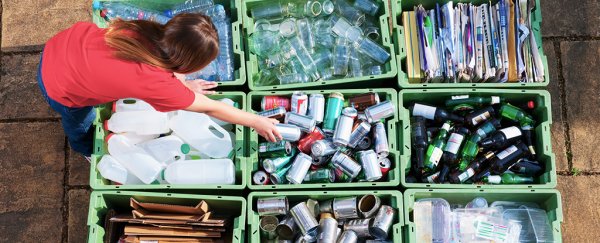Plastics are a growing problem for our environment, in part because they are so difficult to recycle. Now scientists have identified a microbe that might be able to help break down one of the toughest plastics around.
The microbe is a bacterium called Pseudomonas sp. TDA1, and it looks as though it might be able to chew through some of the chemical bonds holding polyurethane-based plastic – the sort used in everything from fridges to footwear.
Polyurethane doesn't melt when heated, making it hard to destroy, but it appears that Pseudomonas sp. TDA1 is able to metabolise some of the chemical components that make up this type of plastic.
"The bacteria can use these compounds as a sole source of carbon, nitrogen and energy," says microbiologist Hermann Heipieper, from the Helmholtz Centre for Environmental Research-UFZ in Germany. "This finding represents an important step in being able to reuse hard-to-recycle PU products."
The discovery was made in the soil underneath a waste site containing an abundance of brittle plastics. Having spotted the strain, the scientists ran a genomic analysis and other experiments to work out the bacterium's capabilities.
According to the team, Pseudomonas sp. TDA1 comes from a group of bacteria known for being able to handle toxic organic compounds, and is also part of the family of extremophile microorganisms that can survive in the harshest of environments – including the toxic environment of degrading plastic.
It's a promising start for a bacteria-based solution to our plastic recycling problem, but it is only a start. We'll need to know much more about the biochemical processes behind this metabolism before we can start putting Pseudomonas sp. TDA1 to good use.
With 2015 figures showing more than 3.5 million tons of polyurethane plastic produced in Europe every year, we're talking about significant volumes. It appeals to manufacturers because it's lightweight and flexible, but when it's sitting in landfill it can give off toxic chemicals, including carcinogenic ones.
Employing bacteria isn't our only hope for doing something with polyurethane waste, however. Scientists have also experimented with changing how this type of plastic is made, potentially making it easier to degrade it in the future.
We're also seeing an increasing number of efforts to cut down on plastic usage in the first place – the less we rely on it, the less we'll need to manufacture, and the less we'll have to send to landfill sites.
Let's hope Pseudomonas sp. TDA1 can be somehow enlisted in the fight against hard-to-recycle plastics, and that other promising avenues of research in this field can bring about practical solutions sooner rather than later.
"Post-consumer plastics are already a major challenge for the environment and will be an even bigger one in the future," write the researchers in their published paper.
The research has been published in Frontiers in Microbiology.
